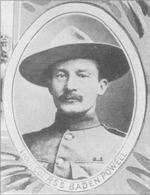This Day in History: July 3, 1900
Additional Date: July 3, 1900
After the fall of Pretoria on 5 June 1900, the British maintained a favourable command of several strategic points in the Transvaal area. Western Transvaal burghers, or farmers, who had begun to think the war was at an end, had surrendered Rustenburg to Col. Robert Baden-Powell.
At this stage of the Second Anglo Boer War, set-piece battles had become futile, and the Boers, under leaders like General De la Rey, had realized that war would now have to be conducted by unconventional means- guerrilla warfare.
The surrounding areas of Pretoria were places of strategic importance due to seven passes or neks [necks]. As wheeled-traffic could only cross these passes at certain points, Commando Nek and Silkaatsnek were of tactical importance, and so Col. Baden-Powell was ordered to occupy this area.
The British occupation of Silkaatsnek led to the Battle of Silkaatsnek on 11 July 1900, when De la Rey was informed that the nek was lightly held and that the British had ignored the "shoulders" of the pass. He decided to attack, and the battle began in the early hours of 11 July 1900. The British surrendered the next morning.
Baden-Powell is an important figure in the military history of South Africa, as he is also credited with founding the international Boy Scouts and Girl Guides movement, which began partly as a result of his observations of children during the siege of Mafikeng and throughout the British Empire.
References:
Cloete, P.G. (2000) The Anglo-Boer War: a chronology. Pretoria: Lapa.
Copley, I.B. "The Battle of Silkaatsnek- 11 July 1900". Military History Journal - Vol. 9 No 3 [online] Available at: samilitaryhistory.org [Accessed 23 June 2009]
KÁ¶hler, K. "Some Aspects of Lord Baden-Powell and the Scouts at Modderfontein". Military History Journal - Vol. 12 No 1 [online] Available at: samilitaryhistory.org [Accessed 23 June 2009]
